Gender and Inclusion
Gender, age, abilities and other individual or context-specific characteristics present different opportunities and challenges to provide CVA to people in crisis in a dignified manner.
Among humanitarian actors, there is an increasing acknowledgement of the specific needs and constraints of people of differing abilities, older people, people of different genders, particularly women, and people on the move. Alongside this is a growing appreciation of the need for tailored and sensitive measures that ensure their effective inclusion.
Supporting the needs of diverse people with CVA goes beyond making them a target group; it is about meaningful engagement, purposive design and implementation, and programme adjustment to meet different groups’ needs with dignity. Inclusive approaches go hand in hand with people-centred aid.
Current priorities
The CALP Network will continue to encourage cash actors to widen their focus to be more inclusive and champion a fuller understanding of how CVA can go beyond the notion of ‘do no harm’ towards appropriately addressing the needs of diverse people in safe and dignified manners.
We will work to elevate the experiences and initiatives on CVA and gender, disability inclusive CVA, working with different ethnicities and cultural identities, minority groups, people with diverse sexual identities, and age groups.
CALP will also strive to make its work as accessible as possible.
Featured content

Collected Papers on Gender and Cash Transfer Programmes in Humanitarian Contexts
Report
Existing gender inequalities mean that disasters and conflicts impact women, men, girls and boys differently. Cash based assistance is one of the most significant developments in humanitarian assistance in recent years. But the relationship between gender and cash based assistance in humanitarian contexts is poorly understood. All too often, interventions are designed based on assumptions...

Microlearning video: CVA and Gender
Blog Post
This video provides an overview of the relationship between gender and cash and voucher assistance (CVA) structured around the humanitarian project cycle, which include: Assessment and response analysis: How to adjust the assessment processes to achieve a more accurate reflection of gender and markets. Design and implementation: How to use methods and protocols to reduce the potential...

Better Gender Outcomes in Food Assistance through Complementary and Multi-Modal Programing: Promising Practices Tip Sheet
Guidelines and Tools
This Tip Sheet is excerpted from the research report, “Better Gender Outcomes in Food Assistance through Complementary and Multi-Modal programming,” and gives promising practices by the cycles of project cycle management, as well as at the response level. Additionally, there are expert tips and wisdom practices that support the use of a gendered approach in development or humanitarian...

Cash & Voucher Assistance and Gender-Based Violence Compendium
Guidelines and Tools
The Compendium is intended as a companion to the 2015 Inter-Agency Standing Committee (IASC) Guidelines for Integrating Gender-Based Violence Interventions in Humanitarian Action and its companion resource, the GBV Pocket Guide. The guidance was developed through the efforts of 15 organizations who contributed expertise in the inception, design and review of the document. The process was led...
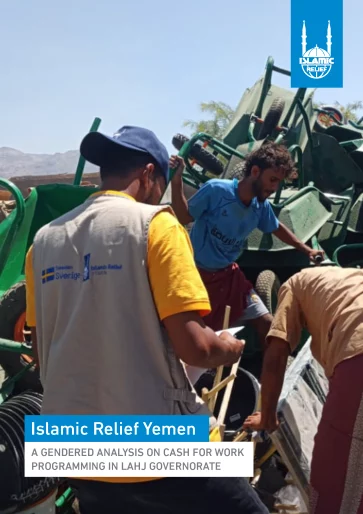
A Gendered Analysis on Cash for Work Programming in Lahj Governorate
Case Study
Cash for Work (CFW) programmes are designed to help the most vulnerable people meet their essential and basic needs. In Yemen, CFW interventions are responding to an ever-growing proportion of the Yemeni population that are in need of humanitarian assistance. Working with communities in the targeted areas of Hudayda and Lahj, the Swedish International Development Cooperation Agency SIDA-funded...
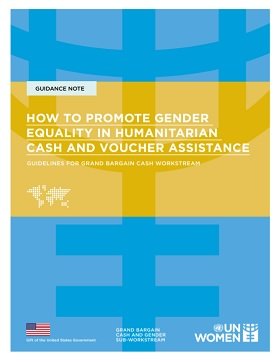
How to Promote Gender Equality in Humanitarian Cash and Voucher Assistance
Guidelines and Tools
The use of cash and voucher assistance (CVA) in humanitarian action is increasing rapidly.
With this rise, there is also growing demand by stakeholders to ensure CVA is more gender-responsive, addressing gender gaps and moving towards greater gender equality.
Gender-responsive CVA, which recognizes existing disparities and addresses the needs of all crisis-affected people equally, has the...
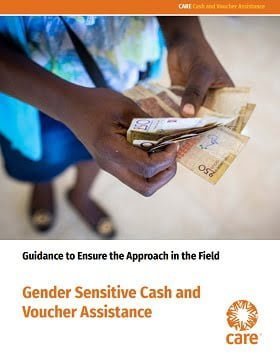
Gender-Sensitive Cash and Voucher Assistance: Guidance to ensure the approach in the field
Guidelines and Tools
This guidance builds on CARE’s ambition-via practice, research, evidence on CVA–and aims to support the application of gender sensitive CVA throughout the project cycle and at the response level. It is divided into two sections: – Part A: ‘What has been learned about gender sensitive CVA?,’ briefly explains the recommendations that came from the research. – Part B: ‘How do we...

Enablers and Gaps: Gender Equality, Gender-Based Violence Response and Mitigation in Cash and Voucher Assistance at Response levels: analysis on three case studies
Report
The Gender and Cash Sub-Workstream identified three case studies that illustrate how Cash Working Groups, GBV Sub-Clusters, gender focal points (e.g. Gender in Humanitarian Action Working groups at country and regional level) and humanitarian partnerships can enable meaningful and wider engagement on gender equity and GBV response in CVA. The case studies all show different aspects of linking...

How to mitigate gender-based violence (GBV) risks in cash and voucher assistance (CVA)
Video
Cash and voucher assistance (CVA) is an important tool to help individuals affected by crises get back on their feet. But just like any other form of assistance, it is vital to ensure that it does not fuel tensions in the household or in the community and that it does not create new risks for women and girls. Fortunately, there are a variety of ways that cash actors can work to mitigate risks...

Inclusive Information Systems for Social Protection: Intentionally Integrating Gender and Disability
Policy paper
Digital information systems serving the social protection sector, and especially social assistance, are increasingly prominent and will continue to be, as is the case within all other sectors. “Why? Because the ability of a country to care for its people and respond to their lifecycle needs depends on its ability to identify those who are in need, enroll them, provide tailored benefits and...
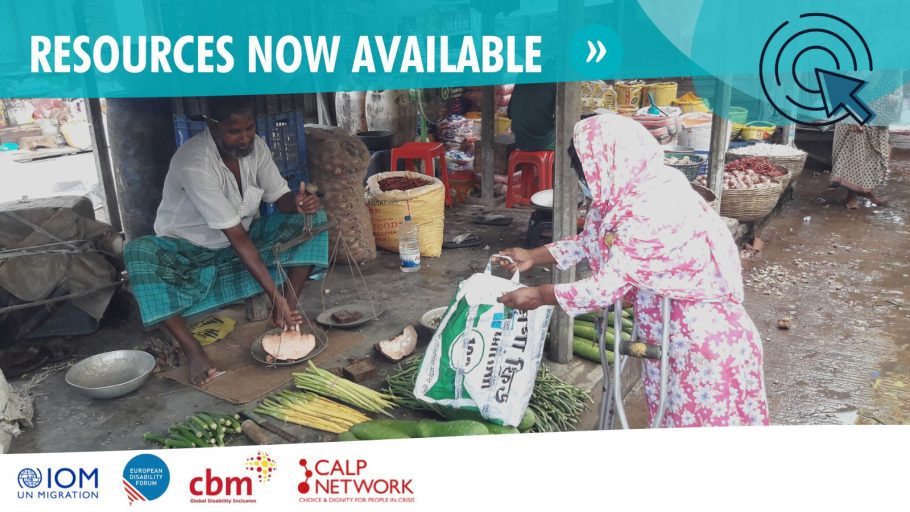
Mainstreaming disability inclusion into humanitarian CVA
Presentation
What is a rights-based approach to disability? How can disability inclusion be mainstreamed to ensure more inclusive and effective CVA humanitarian responses? To answer these key questions, CALP, CBM Global, European Disability Forum and International Organization for Migration (IOM), came together to organize the webinar “Mainstreaming disability inclusion into humanitarian CVA”, with the...
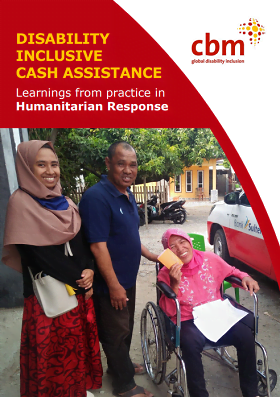
Disability Inclusive Cash Assistance: Learnings from Practice in Humanitarian Response
Guidelines and Tools
This case study collection describes lessons learned from seven inclusive humanitarian cash transfer projects implemented from 2015 – 2020 in Niger, Zimbabwe, Pakistan, Bangladesh, Philippines, and Indonesia, and five ongoing projects from the 2020 Covid-19 pandemic responses. This good practice collection aims to benefit both humanitarian practitioners engaged in Cash Based Interventions...
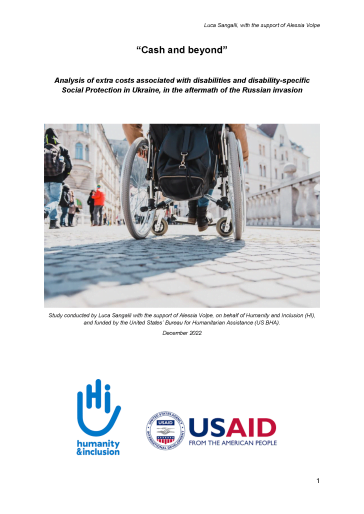
Cash and beyond – Analysis of extra costs associated with disabilities and disability-specific social protection in Ukraine, in the aftermath of the Russian invasion
Report
Following the escalation of the conflict in Ukraine in February 2022 and the consequent humanitarian crisis, the country has experienced active fighting and massive displacement, both within and outside its borders. Persons with disabilities and older persons have been facing particularly harsh effects, especially for those with more severe forms of disabilities, who encountered challenges in...
Thematic lead
Latest

Onward Bound: Evaluating Cash and Voucher Assistance for Migrants on Sahel’s Migration Trail – Research and learnings from the Sahel region
Report
This research – a collaboration between the British Red Cross and Samuel Hall – provides evidence on the opportunities and challenges to integrate cash and vouchers assistance (CVA) as a support modality in migration programming in the context of transit migration in the Sahel. While CVA has become...
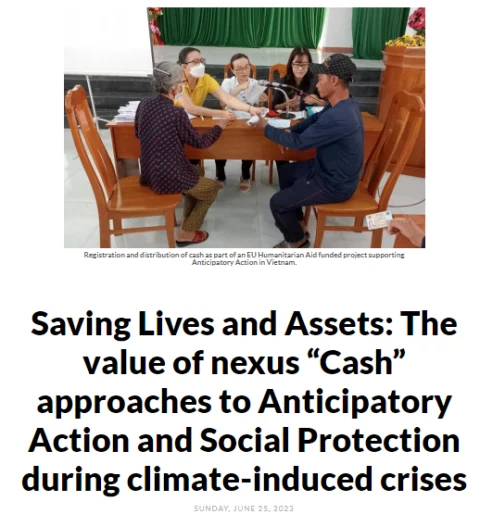
Saving Lives and Assets: The value of nexus “Cash” approaches to Anticipatory Action and Social Protection during climate-induced crises
Report
As a follow-on reflection from an inter-agency panel presentation at the ECHO EHF 2023, panelists highlight the importance of drastically changing “gear” to scale up pre-crisis Anticipatory Action investment, leveraging the “nexus” enabler – cash. Humanitarian needs have reached an unprecedented...
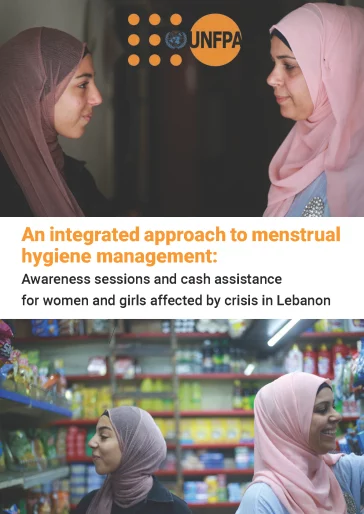
An Integrated Approach to Menstrual Hygiene Management: Awareness sessions and cash assistance for women and girls affected by crisis in Lebanon
Case Study
In 2022, UNFPA Lebanon worked with local partners to launch an integrated cash and awareness for menstrual hygiene management (MHM) initiative as a way to tackle the growing issue of period poverty amidst the country’s economic crisis. Through the pilot, over 2,600 vulnerable women and girls of...

Mainstreaming disability inclusion into humanitarian CVA
Presentation
What is a rights-based approach to disability? How can disability inclusion be mainstreamed to ensure more inclusive and effective CVA humanitarian responses? To answer these key questions, CALP, CBM Global, European Disability Forum and International Organization for Migration (IOM), came together to...

Microlearning video: CVA and Gender
Blog Post
This video provides an overview of the relationship between gender and cash and voucher assistance (CVA) structured around the humanitarian project cycle, which include: Assessment and response analysis: How to adjust the assessment processes to achieve a more accurate reflection of gender and...
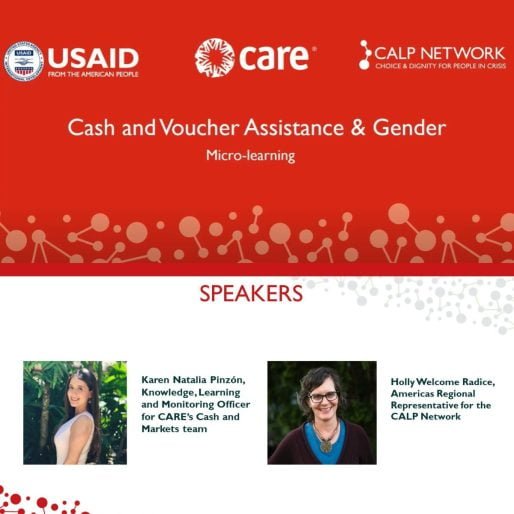
Presentation: Module about Cash and Voucher Assistance & Gender
Presentation
This slide presentation is part of CALP Network’s microlearning video, produced in collaboration with CARE. This micro-learning module provides an overview of the relationship between gender and cash and voucher assistance (CVA) organized around the humanitarian project cycle, and is part of UN...
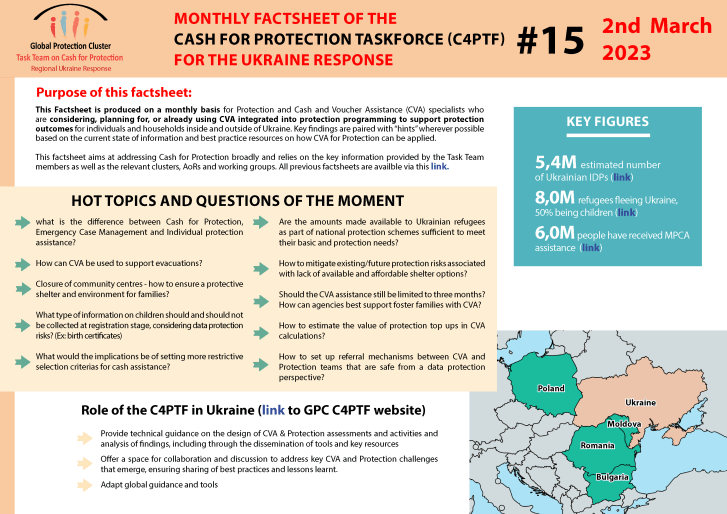
Monthly factsheet of the Cash for Protection Taskforce (C4PTF) for the Ukraine Response
Report
This Factsheet is produced on a monthly basis for Protection and Cash and Voucher Assistance (CVA) specialists who are considering, planning for, or already using CVA integrated into protection programming to support protection outcomes for individuals and households inside and outside of Ukraine. Key...

Cash actors have the power to mitigate GBV – here are six ways to do it
Blog Post
Cash actors play an important role in providing assistance that helps to save lives and increases resilience. But it’s also our responsibility to carefully consider any possible Gender-Based Violence (GBV) risks that cash and voucher assistance (CVA) could create for women* who receive it. While there...

Cash and beyond – Analysis of extra costs associated with disabilities and disability-specific social protection in Ukraine, in the aftermath of the Russian invasion
Report
Following the escalation of the conflict in Ukraine in February 2022 and the consequent humanitarian crisis, the country has experienced active fighting and massive displacement, both within and outside its borders. Persons with disabilities and older persons have been facing particularly harsh effects,...
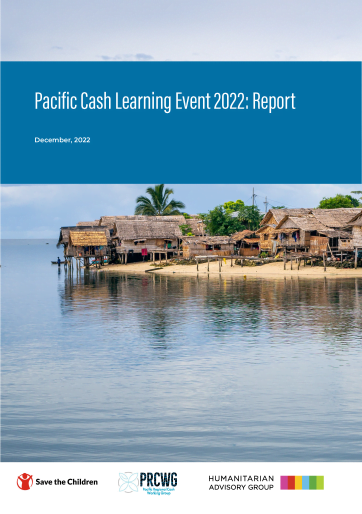
Pacific cash learning event 2022: Report
Report
The Pacific Cash Learning Event was held during an important time for the region. The Pacific is highly vulnerable to disasters, which are becoming increasingly frequent and intense as a result of climate change. These disasters threaten health, food and water systems and economic security, while the...
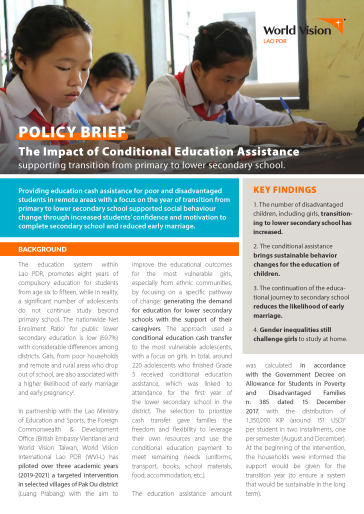
The Impact of Conditional Education Assistance
Policy paper
This Policy Brief by World Vision Laos PDR, World Vision Taiwan, Lao Ministry of Education and Sport, FCDO (through the British Embassy Vientiane) highlight the impact of conditional education assistance (cash transfers) supporting transition of vulnerable children from primary to lower secondary...
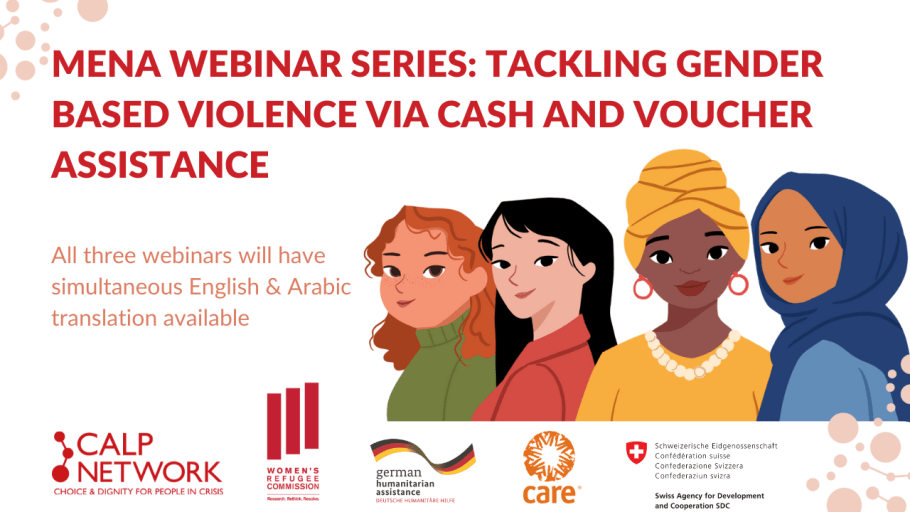
MENA Webinar Series: Tackling Gender-Based Violence via Cash and Voucher Assistance
Webinar
Gender-based violence (GBV) is rampant — globally, one in three women experiences some form of violence or abuse. GBV is pervasive in humanitarian settings and anecdotal evidence points to the increase in GBV since the start of the COVID-19 pandemic.
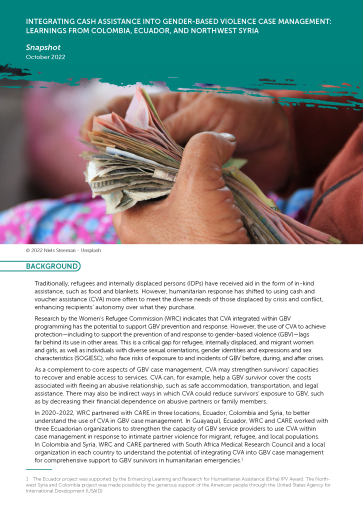
Integrating Cash Assistance into Gender-based Violence Case Management: Learnings from Colombia, Ecuador, and Northwest Syria
Case Study
In 2020-2022, WRC partnered with CARE in three locations, Ecuador, Colombia and Syria, to better understand the use of CVA in GBV case management. In Guayaquil, Ecuador, WRC and CARE worked with
three Ecuadorian organizations to strengthen the capacity of GBV service providers to use CVA within case...
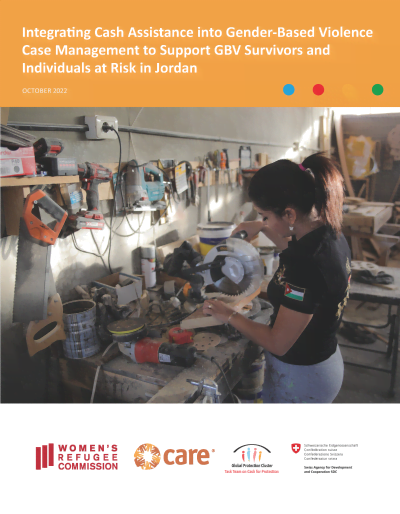
Integrating Cash Assistance into Gender-Based Violence Case Management to Support GBV Survivors and Individuals at Risk in Jordan
Case Study
With support from the Swiss Agency for Development and Cooperation, the Women’s Refugee Commission (WRC) and CARE are leading an initiative on behalf of the Global Protection Cluster (GPC) Task Team on Cash for Protection (TTC4P) to expand access among field-level
practitioners to the requisite...

Integrating Cash Assistance into Gender-based Violence Case Management to Support GBV Survivors and Individuals at Risk in Jordan Snapshot
Case Study
Jordan is home to the second largest refugee population per capita in the world. The country’s population of 10,571,602 includes more than 760,000 refugees registered with the UN refugee agency. More than 80 percent live in urban areas rather than in refugee camps.
A recent assessment by CARE Jordan...
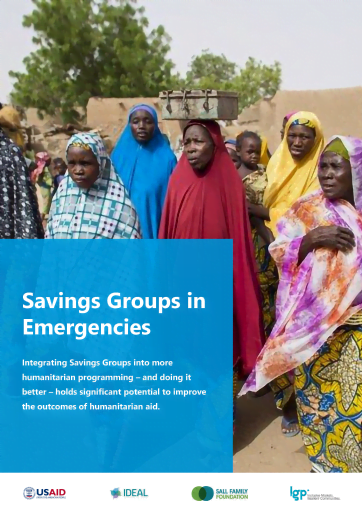
Savings Groups in Emergencies Learning Brief
Guidelines and Tools
We know that savings groups work – and that they are powerful. But, in emergencies, we must revisit some of our approaches and assumptions. Integrating savings groups into more humanitarian programming – and doing it better – holds significant potential to improve the outcomes of humanitarian aid....
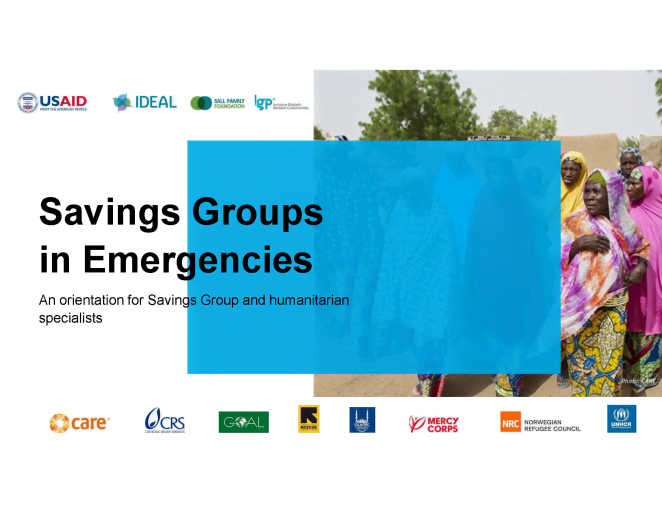
Savings Groups in Emergencies Training Slide Deck
Guidelines and Tools
This Training Slide deck provides actionable guidance to organizations to promote or work with Savings Groups in emergency settings. We know that Savings Groups work – and that they are powerful. But, in emergencies, we must revisit some of our approaches and assumptions. Integrating Savings Groups into...
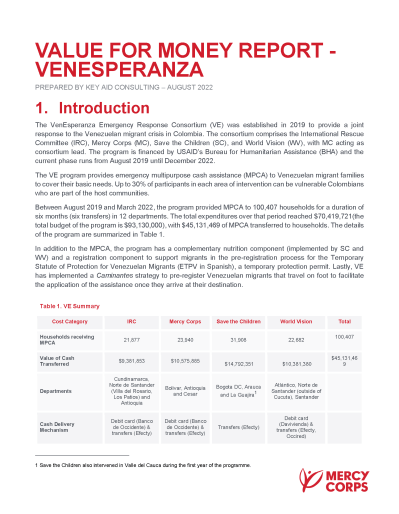
Value for Money Analysis of VenEsperanza
Case Study
The VenEsperanza consortium in Colombia participated in a Value for Money analysis that evaluated financial transactions during the first years of operation of the consortium. The analysis focuses on efficiency, effectiveness and equity of the work of the consortium.
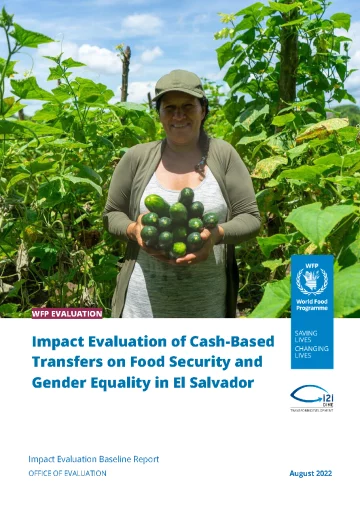
Impact Evaluation of Cash-Based Transfers on Food Security and Gender Equality in El Salvador
Case Study
The El Salvador impact evaluation aims to understand the impacts of food-assistance for assets (FFA) programming targeting women on both income and asset loss, while also aiming to understand the longer-term implications of the response on gender equality and women’s social and economic empowerment Main...

Delivering Better Together: Standard Operating Procedures for Oxfam’s Approach to Cash and Voucher Assistance
Guidelines and Tools
Delivering Better Together: SOPs for Oxfam’s Approach to Cash and Voucher Assistance is a digital guide to all things cash and vouchers in Oxfam that can be downloaded to and accessed from a phone, tablet, or any other device. The SOPs focus on the basics of cash and vouchers, the use of it for...



